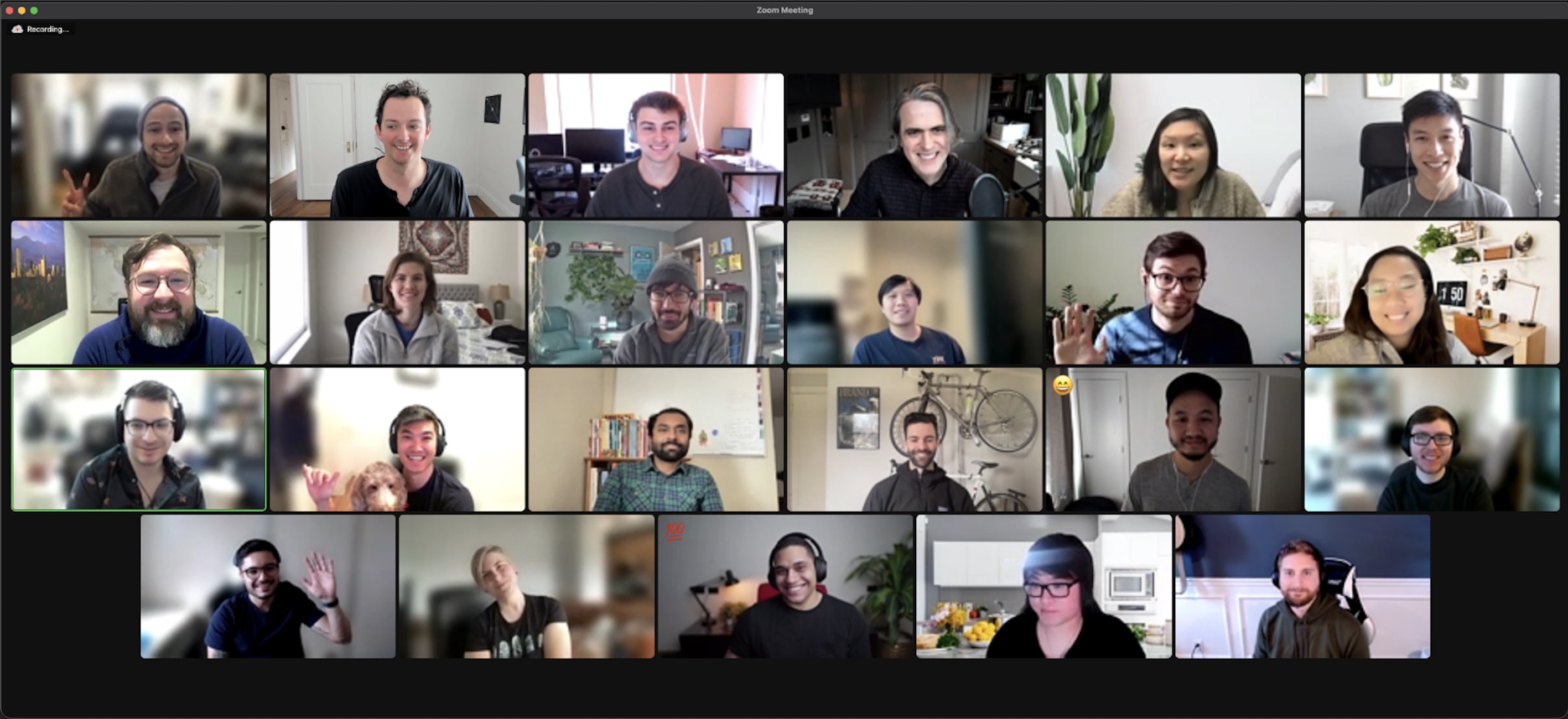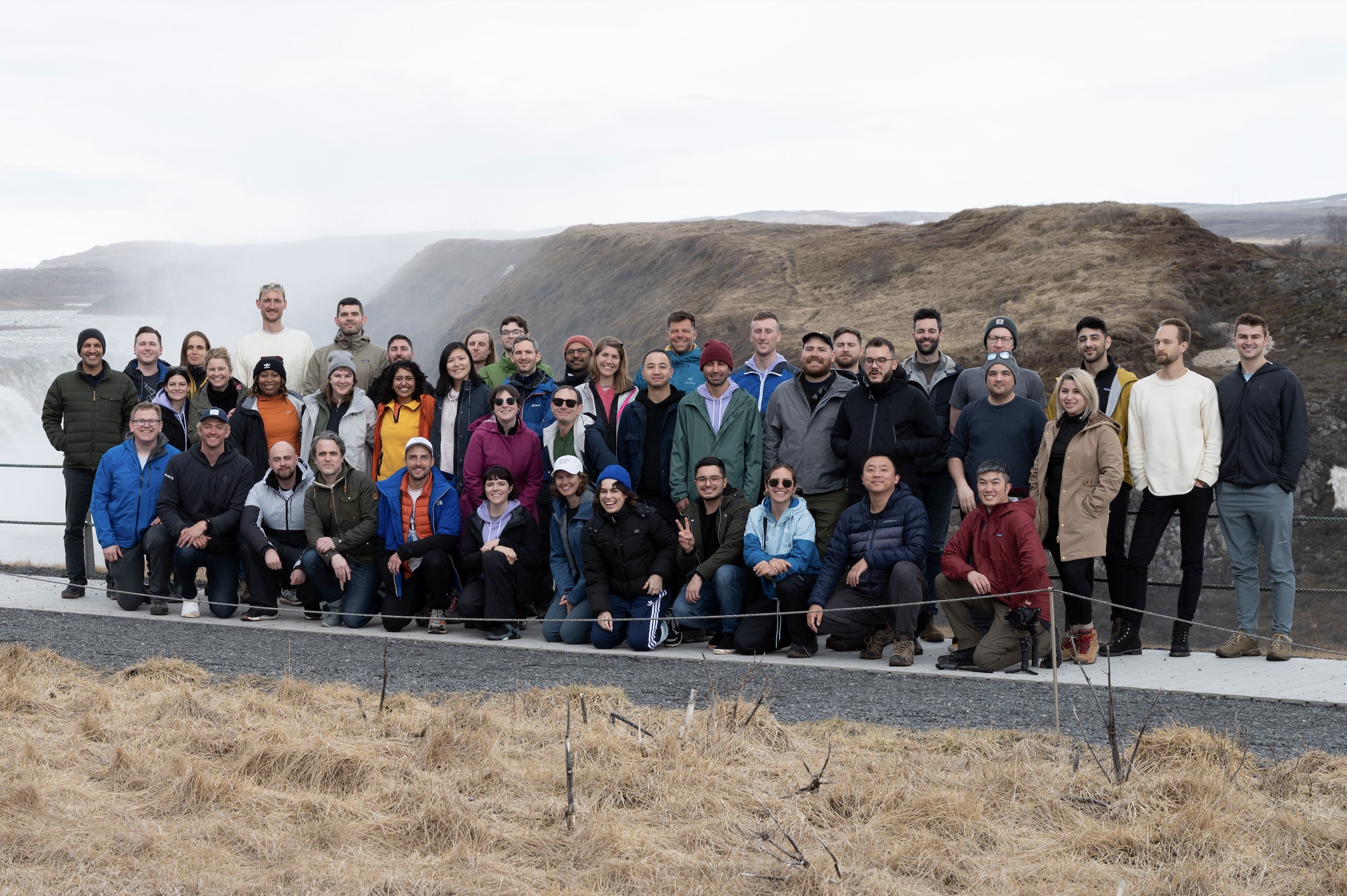From LinkedIn:
Today is very bittersweet as it is my final day at WorkOS. This is the company that took a chance hiring me when I was a new grad, and I could not be more grateful for the opportunity. I truly believe I have worked with some of the most talented colleagues in the industry these past two years and hope to cross paths with you all again one day. It has been a distinct pleasure of mine to learn from such a remarkable group of people. I am incredibly thankful for each of you.
How it all began
When I first heard of WorkOS, I was entering my senior year at Notre Dame. Zeno Rocha had just announced that he would depart Liferay after several years to join WorkOS as the VP of Developer Experience. I was always curious about startups and had been looking at post-graduation opportunities. WorkOS was only advertising senior engineering roles at the time, but I'm a firm believer in "the worst case is they say no," so I sent a long-shot email to Zeno inquiring about roles anyways.
Hi Zeno, I saw your LinkedIn post about opportunities at WorkOS. I help maintain the dracula theme tmux project and am very interested in potential roles. Attached is my resume for your reference. Let me know if there are any roles you feel would be a good fit, excited to see all that WorkOS has in store!
I was overjoyed when Zeno got back to me!
Hey Dane, It's so nice to hear from you. The tmux theme is one of my favorite and it would be awesome to work full-time with a fellow vampire 😆 Let's have a call so we can finally meet each other? Feel free to book some time this week
From there, we kicked things off. Zeno introduced me to Mark Tran, WorkOS's first employee, and my manager during my first year at the company.
A couple of months later, I finished our interview process, met many other team members, and signed my offer! By January 2022, I had finished at Notre Dame and began my full-time career as a software engineer!

A few learnings
Since then, it has been an incredible journey. I've learned more than I could possibly list here. Alas, here are a few takeaways I have:
Earn trust
While at WorkOS, I was the only new grad engineer on the team. Most of my colleagues were former staff-level engineers at Stripe, Auth0, Lyft, and other great companies. This meant I had a lot to prove, and I quickly realized that proving myself meant earning the trust of other ICs and leadership.
There are a few ways I found myself earning the trust of leadership and IC colleagues:
1. Get stuff done: I recently came across an interview clip of President Obama, where he gives some career advice: "just learn how to get stuff done." There's no better way to say it. Raise your hand to take on lots of work, and then actually do it.
2. Put aside the ego: Admittedly, a startup has way more work to do than anyone could complete. If you're getting lots of stuff done, you may find yourself in a situation where you suddenly realize you signed up for more work than you can handle. That's OK! Be honest with your colleagues and managers and ask for help. I promise you that a manager would much rather be told a project needs additional help than be in for a surprise because you're trying to be a hero, especially when they already think of you as someone who gets stuff done.
3. Leave no doubt: Engineers with 10+ years of experience should use caution when trusting a 23-year-old who graduated from college less than two years ago. That is why I needed to leave no doubt. Prove that you're way better than the expectations. Are you asked to have a feature completed by Friday? Finish it by Thursday. Explaining how a complex bug works? Cite your sources with links back to the codebase. Claiming that customers would use a particular feature? Provide customer data and conversations as proof.
Publish demos early
My first project at WorkOS failed initially.
We had a meeting called "Design Weekly" with management and our CEO involved. In the meeting, we would scrutinize projects before they shipped to ensure they met our high bar for quality.
The designer I was working with at the time and I presented what we had worked on, a feature for allowing teams to create a Slack channel with our customer support directly from the WorkOS dashboard. Unfortunately, it got torn apart. The project was killed after that meeting, although we resurrected it a few quarters later.
I was discouraged after that experience. Still, I was determined to ensure my next project would avoid the same fate. So, I strived to get feedback as early as possible in the development process.
To some degree, we had already done that with the Slack project. We published an RFC precisely outlining what we wanted to build and how we planned to build it, and it was well received! However, I learned that many people who later had things to say about the project did not pay close attention to that original RFC.
I needed to earn their attention. And this is where the demo comes in.
Everyone loves a demo, and if you're doing it right, you should demo a prototype before you've built anything real. That's because people pay attention to demos. A 5-minute or less video of you showing off a shiny new feature will get some views. After people watch the demo, you'll then receive criticism that you can now address early on before writing production code. Continue posting these throughout the project's lifecycle, and it will have a greater chance of succeeding.
If that isn't enough to convince you to post demos, they're also a great way to promote your work and yourself!
Tech debt is not always bad
After my first few months at WorkOS, I became intimately familiar with our monorepo and asked more questions. "This seems wrong. Why don't we fix it?" The answer, it turns out, is often, "We don't have time right now." There's nothing wrong with that!
I think about tech debt the same way you would financial debt. Sometimes, unintuitively, you want a reasonable amount of it. If you're going to buy a home, you probably want a mortgage if you can get a low rate. That's because you could purchase the house now and have more capital left over to invest in other markets that will yield a return.
The same idea applies to technical debt. Say that we have a fictional to-do list app and want to add reminder notifications to it. The most scalable and maintainable way to build this could be to build a service that queries our database for upcoming tasks and sends them to a message queue like Kafka, where another service can process the reminders. That's a lot of work, though, and we don't have any other notifications to process at the moment. Instead, we could punt on building out those services and simply write a cron job that queries our database and delivers the appropriate notifications.
Much like the mortgage example, this might appear to slow us down in the long term. We have to make a monthly mortgage payment and work with a messy codebase that could also run into scalability issues in the future. However, we saved a couple of months' worth of work and now can spend that time building a new task-filtering feature instead. And for our mortgage, the $X we took out as a loan with a 4% interest rate can now be invested into the S&P 500 to generate a 7% annual return.
All of this is just another way of saying do things that don't scale.
Leverage yourself
When I left WorkOS, I was the 2nd most tenured engineer in the company out of ~30.
I quickly realized that made me extremely valuable to my colleagues in certain situations and vice versa.
I could leverage myself when helping onboard new teammates, sharing context on past decisions, giving tours of the codebase and product, etc, because very few people in the company knew as much about WorkOS as I did. I worked with experienced engineers who are highly knowledgeable about being a software engineer in general. Therefore, transferring WorkOS-specific knowledge allowed those people to have a considerable impact.
On the other hand, many of my colleagues effectively leveraged themselves by sharing more general technical knowledge with me. For example, some fantastic colleagues on our infrastructure team spent much time teaching me how to use Datadog. Combining that with my WorkOS-specific knowledge made me highly effective at managing incidents and availability.
Be creative
One of the great things about working at a startup is that you never have someone telling you to stay in your lane. If you're curious about something and can make the time to explore it, no one will stop you. I had great opportunities to embrace curiosity and be creative while working on the Admin Portal.
Every startup says you must understand users, and WorkOS is no exception. However, sometimes your users are challenging to learn about. Admin Portal users are a great example of this.
For context, the Admin Portal is a product for configuring and maintaining enterprise features built with WorkOS. Our customers' customers use the Admin Portal, who are usually IT admins.
We didn't have contact with Admin Portal users directly, so we had to get creative:
- Queried to find which of our customers were using each other's products so that we could talk to their IT admins
- Joined IT admin forums like Mac Admins
- Attended meet-ups to get introduced to IT admins in real life
- Observed IT admin user sessions in Datadog RUM
- Built dashboards with customers' customers' demographic info enriched by Clearbit
There may not always be a clear path given to you when solving a problem (such as learning about customers' customers). Embrace your curiosity and explore whatever leads you can come up with. You'll be surprised by the results you might yield.

What comes next
Career discernment is an underrated aspect of a first job. I chose to work at a growth-stage startup right out of school because I knew I'd get broad exposure to the business.
While it would be foolish to think I know what I want to do with my life, I now have significantly more clarity. Most importantly, I know the next step I want to take in my journey.
At WorkOS, I saw what it's like to work in product and engineering. I even got a little exposure to other aspects of the business, like sales. I learned that I love having a hand in everything.
Pair this with my hyper-competitive nature and belief in the "stress is enhancing" mindset, and it becomes clear that founding a company or working at a very early-stage startup is a great fit for my interests and goals.
For the next couple of weeks, I'll be spending time with family and friends and hacking on some side projects.
After New Year's, I'll be joining something new. We haven't launched yet, so I can't say much publicly now, but I'm excited to share more soon. 🙂